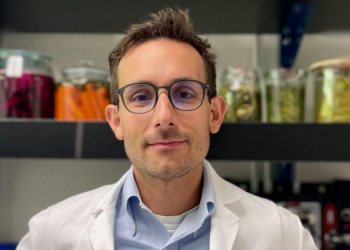Stanford Lifestyle Medicine Blog
Read the latest blog posts from lifestyle medicine experts at Stanford University covering health topics across our 7 pillars.
How Exercise Improves Microbiome Health (and Vice Versa)
By Mary Grace Descourouez, MS, NBC-HWC The human gastrointestinal tract is home to trillions of microorganisms that create the gut microbiome. The gut is where the body digests and absorbs nutrients from our food and, therefore, where we get our energy to perform daily human functions. Microbiota are microorganisms in the gut microbiome that help the body harvest energy, fight pathogens, and regulate immunity. Having a high diversity of microbiota helps us to process food effectively, providing the substrates and...
Probiotics, Prebiotics, and Postbiotics: What Are They and Why Are They Important?
By Maya Shetty, BS Key Takeaways: Probiotic and prebiotic supplements lack substantial scientific evidence that they promote microbiome health. Rather than taking supplements, experts recommend eating fermented foods (probiotics) to promote microbiome diversity and fibrous foods (prebiotics) to feed and sustain “good” bacteria in the gut. Recommended fermented foods (probiotics): Fermented vegetables: kimchi, sauerkraut, and certain pickled vegetables Fermented dairy: yogurt, cottage cheese, kefir, and certain cheeses Fermented soy: tempeh and miso Recommended high-fiber foods (prebiotics): Legumes: lentils, chickpeas, black...
Microbiome Expert Sean Spencer, MD, PhD: On a Mission to Prove that Food is Medicine
By Sharon Brock, MEd, MS Sean Spencer, MD, PhD is a Gastroenterologist and Physician Scientist at Stanford University School of Medicine. Along with seeing patients in the clinic, Spencer conducts cutting-edge research on the microbiome in the Sonnenburg Lab. In his research, Spencer focuses on how nutrition affects the microbiome and the immune system, as well as how our diet can prevent and treat gastrointestinal disease and potentially increase longevity. “There’s a clear association between the microbiome and healthy aging....
Dr. Spencer’s Science-Based Smoothie for Gut Health
By Maya Shetty, BS In the complex world of gut health, finding straightforward solutions that effectively support the microbiome can be challenging. For this reason, Sean Spencer, MD, PhD, Gastroenterologist and Physician Scientist at Stanford University, created a meticulously engineered morning smoothie recipe to support his own gut health. Guided by his deep understanding of the gut's delicate ecosystem, this smoothie is not just a meal but a strategic tool for fostering a flourishing microbiome. Ingredients: 1 cup spinach ½...
More Than a Gut Feeling: How Your Microbiome Affects Your Mood
By Maya Shetty, BS Key Takeaways: The gut and brain are in constant communication through the gut-brain axis, which involves the nervous system, endocrine system, metabolic system, and immune system pathways. Gut microbes produce neurotransmitters, hormones, and metabolites that can affect our emotions, thought processes, and behaviors. Eating foods high in probiotics (such as fermented foods) and prebiotics (such as high-fiber foods) can improve the gut microbiome and mental health. Processed food consumption negatively alters the gut microbiome, leading to...





